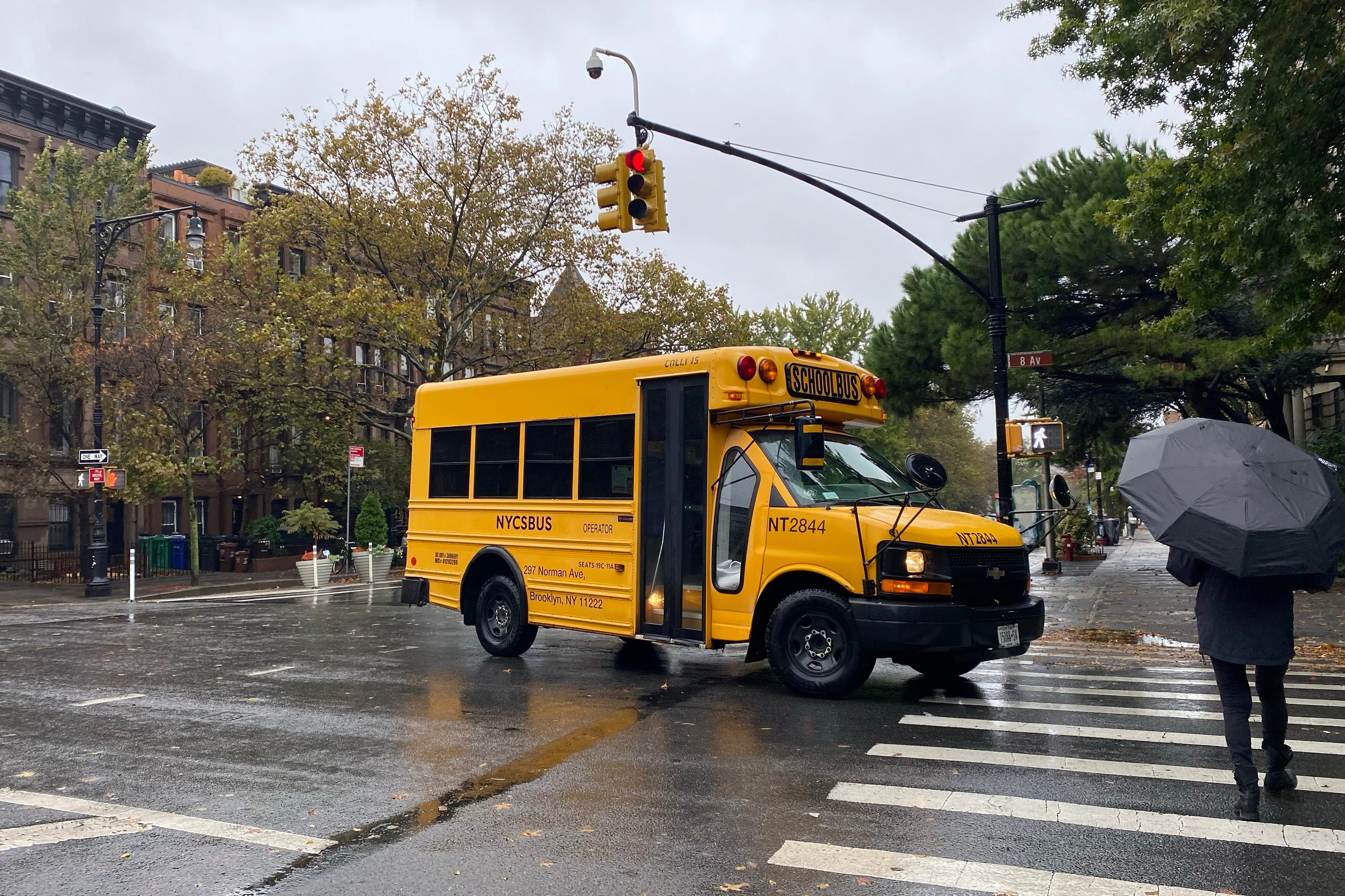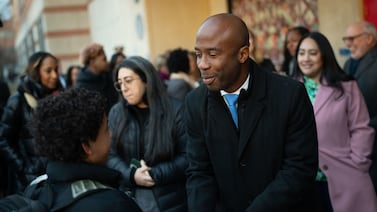Sign up for Chalkbeat New York’s free daily newsletter to get essential news about NYC’s public schools delivered to your inbox.
The companies running New York City’s yellow school buses won a three-year contract extension Wednesday, ending months of tensions and threats of work stoppages that could have upended the commutes of students across the five boroughs.
The Panel for Education Policy, the school board that approves major Education Department contracts, approved the extensions after pushing back last month against a city proposal to extend the contract for five years. The panel unanimously passed a resolution last month saying it would not support the five-year deal.
“We know that this shortened contract term still does not address many abiding concerns that must be tackled to ensure bus service is everything it should be for all our students who rely on it, especially those with disabilities,” schools Chancellor Melissa Avilies-Ramos said at Wednesday night’s panel meeting.
Roughly 43% of those who rely on yellow school buses are students with disabilities.
A five-year extension would have outlasted incoming Mayor Zohran Mamdani’s first term and given the city little leverage to negotiate better outcomes for the system that transports roughly 150,000 students across 9,000 bus routes and costs the city about $2 billion a year. Addressing the system’s challenges — including delayed and no-show buses, unnecessarily long commute times for students, and lack of air conditioning — has long vexed the city.
The 24-member Panel for Educational Policy, or PEP, is often seen as a rubber stamp for approving mayoral priorities, given that the mayor appoints a majority of its members. With three vacancies on the board, however, Mayor Eric Adams no longer has a majority of appointees.
In pushing back against the five-year extensions, the board demonstrated an unusual display of independence and power. The panel, rather than the mayor, appeared to be the driving force behind the shorter contract extension.
Still, the three-year contract was met with some backlash. Several parents, including Brooklyn Borough President Antonio Reynoso complained that the city’s policy of extending the busing contracts that date back to the 1970s has done little to address delays or other busing issues. Reynoso described one incident of a bus driver smoking in front of the bus right before dropping off his 5-year-old son, who has autism and is nonverbal.
“If we give a three-year contract here . . . we’re going to have the same meeting in three years,” he said. “We’ve done this for almost 50 years, and an extension would just allow for three more years so that I can be back here to tell you, I told you so.”
The three-year contracts cover the city’s 52 yellow bus companies, which employ about 17,500 employees. The panel also approved separate emergency contract extensions through the end of January, since the three-year contract does not go into effect immediately and has to first be registered by the comptroller’s office. The extension is needed for the period when there is no valid contract, panel Chair Gregory Faulkner said.
The yellow bus companies said they were pleased to have reached a deal with the city after operating on monthly emergency contracts since this summer, after their five-year contract expired in June.
“We look forward to serving the families with students who attend New York City Schools,” said bus companies’ spokesperson Richard Bamberger.
The companies threatened to lay off drivers and stop services in October after the panel said it would reject the five-year contract extension. But at the last minute, the companies signed an emergency 30-day contract valid through the end of November, easing stress for families reliant on the yellow school buses.
Education Department officials and advocates had expressed interest in rebidding the contracts altogether, but the bus companies don’t want a new contract with the city without an Employee Protection Provision, or EPP. That protection guarantees that laid-off unionized bus workers are prioritized for hiring by other companies at their current wages. The city isn’t able to include that because a 2011 state court decision prevents EPP from being implemented into new contracts.
Currently, that protection can only exist in extended contracts, and legislation to change that has stalled in Albany.
Ananya Chetia is an intern at Chalkbeat NY. Contact Ananya at achetia@chalkbeat.org.







